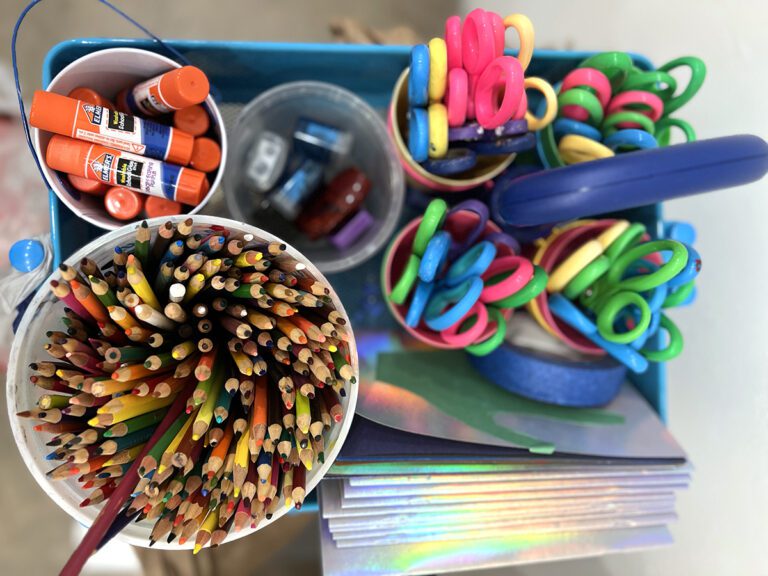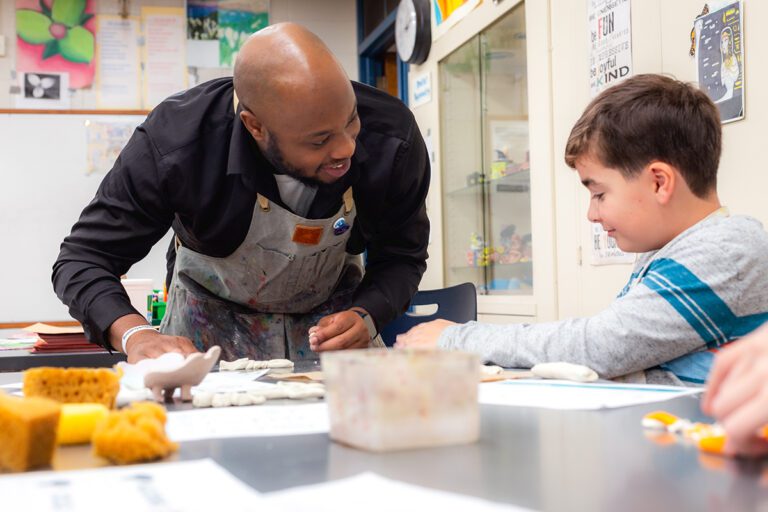As a new school year begins, many brand new art teachers are teaching their first lessons in their new rooms. Although it has been a long time since my first year, I vividly remember the feelings of excitement, fear (ok, terror), and enthusiasm of my first few weeks.
I also remember the advice. Wow, there was a lot of it! Much of it was truly helpful: Get enough rest. Forgive yourself for not being perfect. Work to learn your students’ names. These still ring true today, so many years later. Along with this sage advice was some well-meaning, but less than helpful advice.
Here is some common advice that you shouldn’t follow your first year teaching.
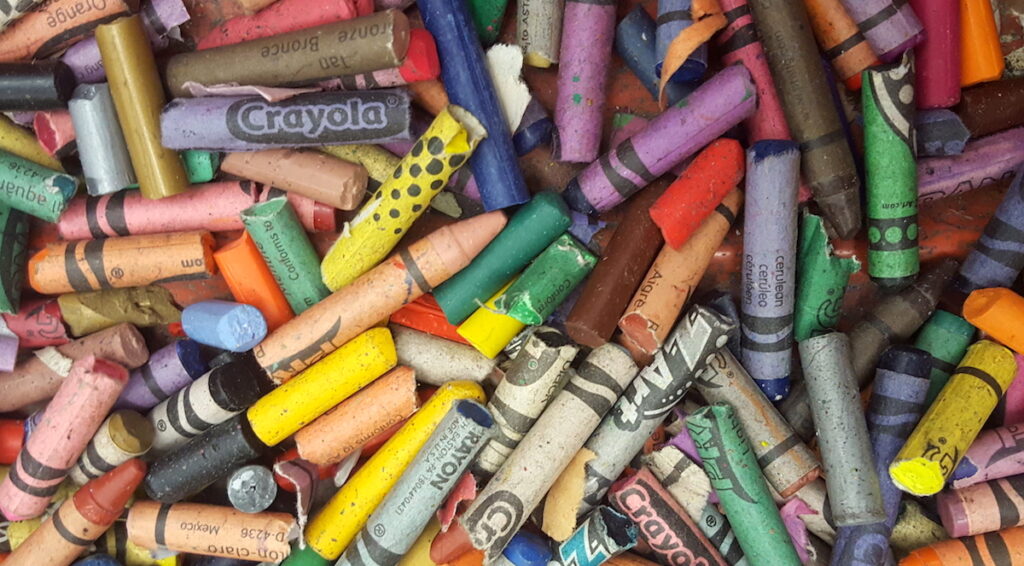
1. Plan out your curriculum for the entire year.
I know you’re excited. And you are nervous. You feel like you need to plan ahead to make sure you are organized. I get it.
The thing is, you will have many things get in your way. Snow days and unanticipated assemblies will cause classes to fall behind. Projects will take much longer or much shorter than planned. You will learn so much about your students that will inspire you to change your plans. And there will be teachable moments you will want to use.
I am not saying planning out your year is a terrible idea. Being organized and looking ahead are important traits for teachers to possess. What I am suggesting is to plan ahead in pencil. Plan it with the understanding that it will change. A lot. If you approach the planning process with this understanding, then planning your entire year is not a bad thing. But it might be a waste of energy.
2. Make one student an example the first day, and the rest will fall in line.
This is terrible advice. I hope nobody told you to do this! Unfortunately, I received this advice my first year teaching. Through conversations with other teachers, I have learned many new teachers are told the same thing.
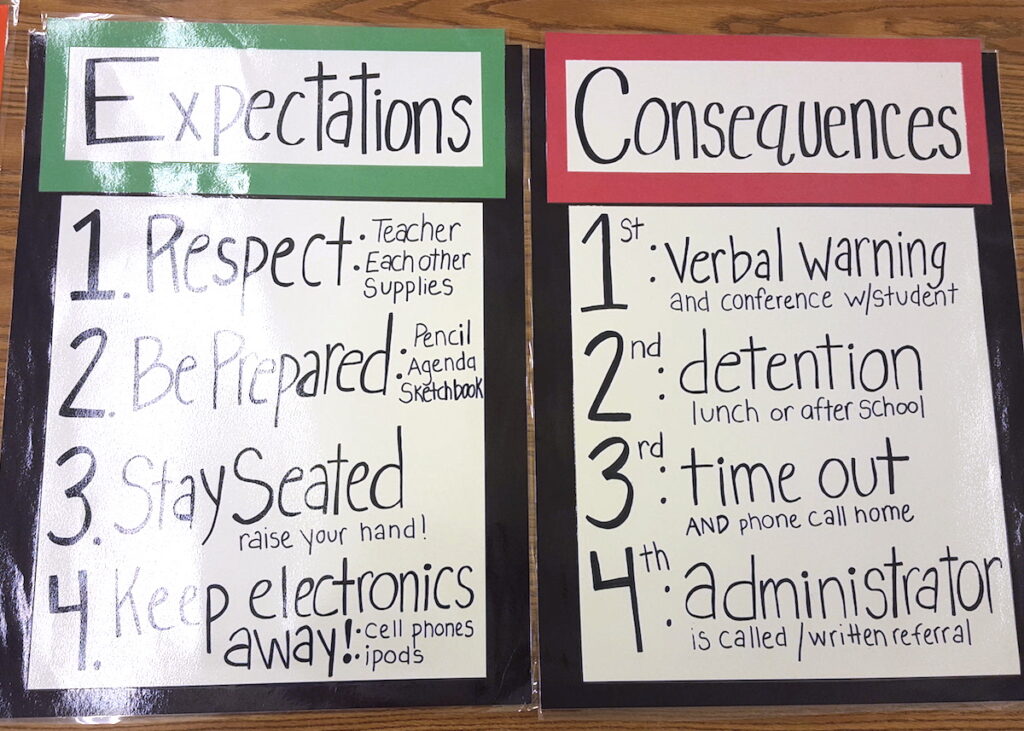
Teaching, at its core, is about relationships. Kids don’t learn from teachers they don’t like. Humiliation and intimidation deteriorate relationships and build walls between students and teachers. Try to avoid singling out a student in front of his or her peers. It creates an unsafe emotional environment that could turn students off from you and your class forever.
3. Don’t smile until after Christmas.
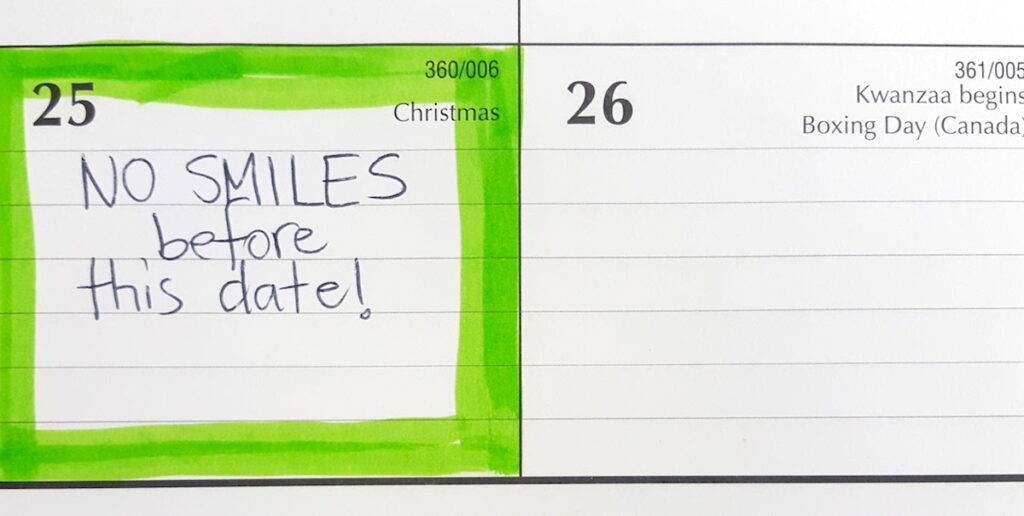
We’ve all heard this one. The idea being students will see you as weak if you smile. Once they think you are weak, they will never respect you and you will struggle with classroom management all year.
As I mentioned above, students don’t learn from people they don’t like. Instead of forcing yourself to maintain a grumpy demeanor for four months, try implementing a culture of order in your classroom. Order can exist in conjunction with joyful learning. It is important to define expectations and address issues quickly, yes. But students will learn more and work harder for a teacher who shows they are happy to be teaching. Go ahead and smile.
4. Treat all students the same.
When I began my teaching career, I was advised to go over rules and consequences the first week of class. I was told to tell students what would happen if they broke rules the first, second, and third time. It was important that everyone would be treated equally. No exceptions.
The problem with this is that there is a difference between equity and equality. Treating all students equally means everyone gets the same regardless of their needs. Equity, on the other hand, means students receive different attention and resources depending on their unique needs.
Sometimes what works for one student does not work for another. That’s why it’s important to treat your students differently. They are individuals with individual needs. Doling out consequences without considering why a student made a choice doesn’t help them avoid it in the future. All students want to be successful. Treating them differently means we help them find their unique paths to success.
5. Just rely on your training. You are totally prepared to teach.
This was something I was told my first year teaching by a very kind and well-meaning veteran teacher. I think she said it to make me feel confident and alleviate some of my nerves the first week of school.
Unfortunately, you are not totally prepared to teach when you enter the classroom your first year. Teaching is incredibly complex and takes many years to master. Don’t feel bad when lessons bomb, or you find yourself panicking because you are not sure how to handle a situation. You will figure it out slowly and grow so much your first couple years.
6. Your assigned mentor will help you with anything you need.
When new teachers join the profession, they are usually teamed up with a mentor. This person is charged with supporting the new teacher by answering any questions they have, providing advice, and helping them get acclimated to the school and community.
The reasons for pairing teachers might be more about location, content area, or convenience than anything else. For art teachers, this might be a teacher who does not teach art at all.
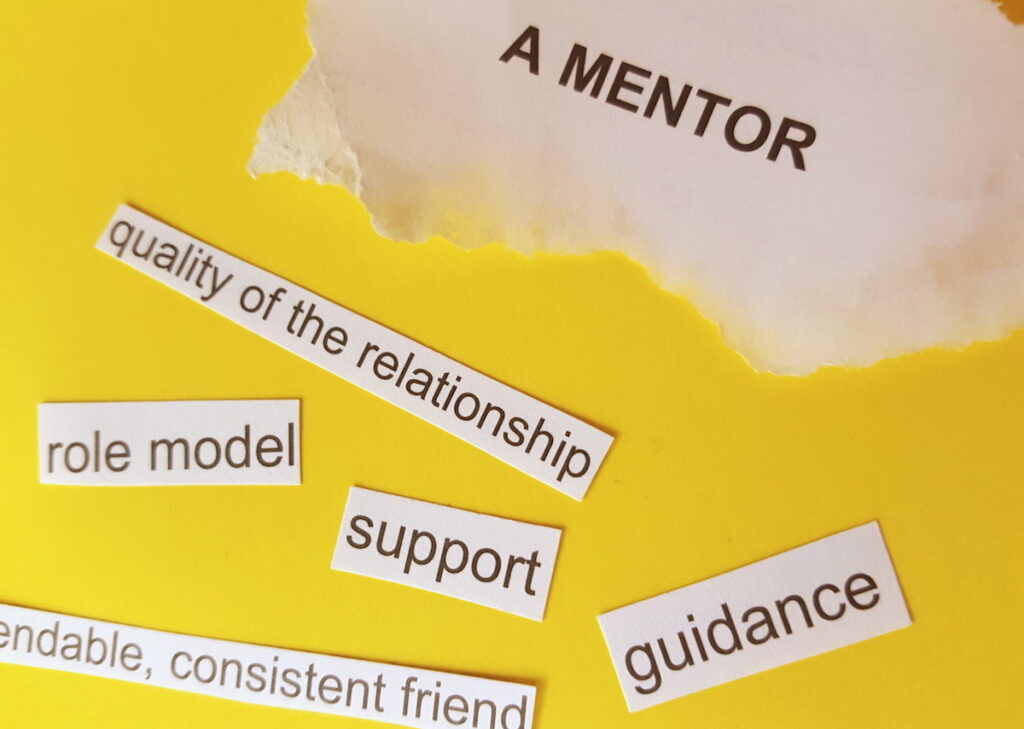
While mentors may be wonderfully helpful, they are often busy teachers who did not choose to be a mentor. They may be unable to answer some questions or unwilling to take the time to meet with you. Sometimes these forced mentorships don’t meet the needs of the new teacher. It can be discouraging when these relationships fall short.
That’s why it is important to develop mentoring relationships with teachers who are invested in helping new teachers grow. You may find the art teacher at a nearby school would love to support you. Your local art education association is another great place to look. Using social media to reach out to other educators is an option if you cannot find the support you need in your area.
The first year in the classroom is an exciting and stressful time for new teachers. It’s sometimes difficult to differentiate between solid and misguided advice. My advice? Smile, get enough sleep, don’t take yourself too seriously, and enjoy yourself. Teaching is a special profession. Welcome!
What advice would you give to new teachers?
What less than helpful advice did you receive when you were beginning your teaching career?
Magazine articles and podcasts are opinions of professional education contributors and do not necessarily represent the position of the Art of Education University (AOEU) or its academic offerings. Contributors use terms in the way they are most often talked about in the scope of their educational experiences.


